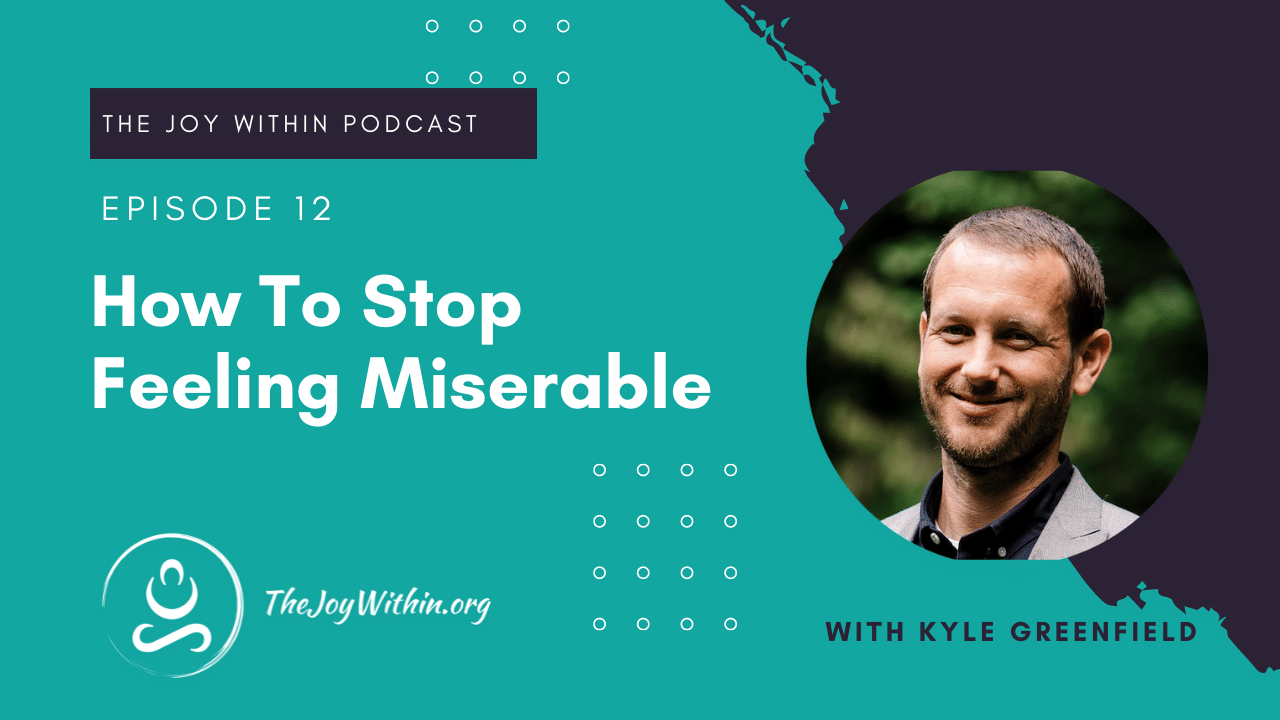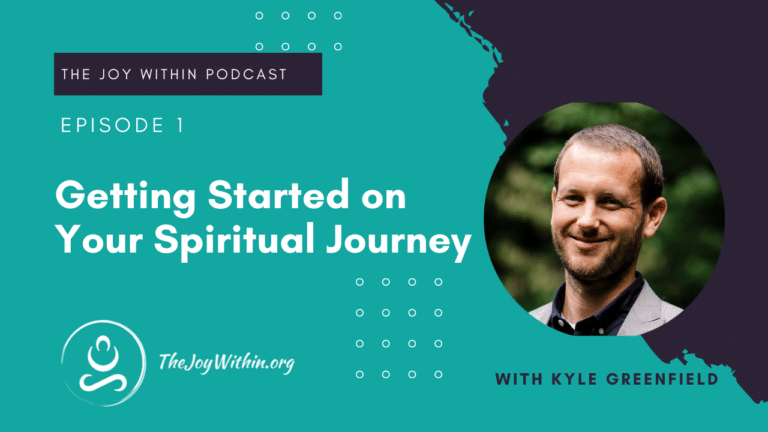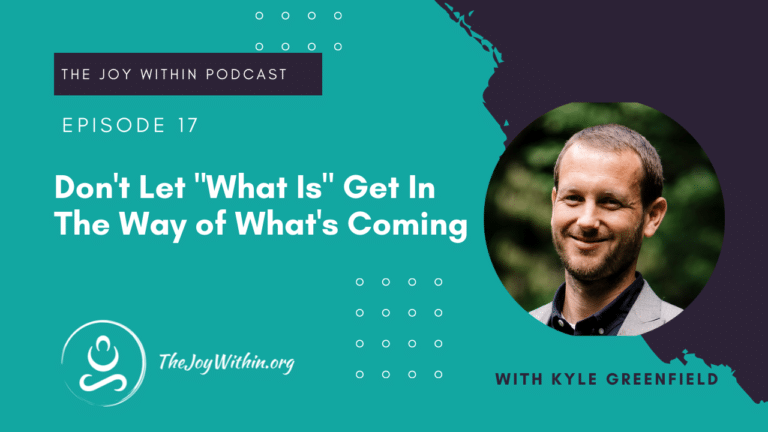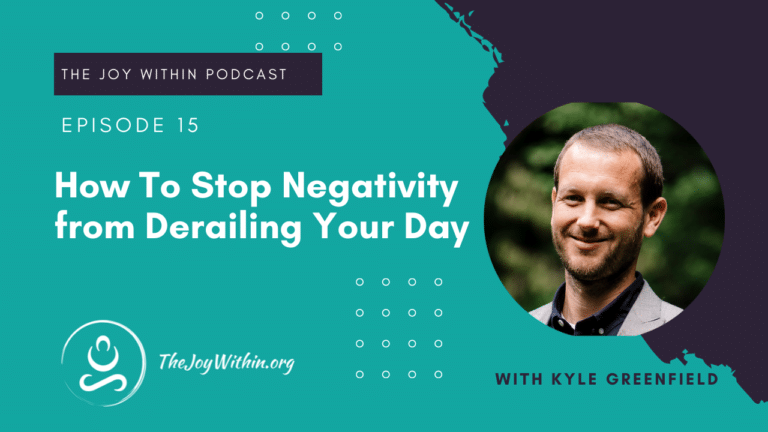Hello and welcome back to The Joy Within’s podcast. Today, I want to share a little trick you can use to help you reframe the way you think about what makes you happy.
And, if you apply this, you can use it to sort of stack the odds in your favor, so you’re taking more of the actions that make you happy, and fewer actions that don’t.
The process is called inversion thinking, and its something that Charlie Munger talks about. I don’t know if he invented the idea, but, that’s where I first heard about it. And if you don’t know who that is, Charlie Munger is a famous billionaire investor, he’s Warren Buffet’s business partner – so, insanely successful – and he has a great way of processing information.
So, inversion thinking is really simple: you reverse your goal and then ask yourself what you would do to achieve that inverted result. Then, to reach your real goal, you do the opposite. So, for example, if you have a goal to save for retirement, using inversion thinking you’d say: If I want to be broke by the time I’m 65, what should I do? And the answer might be, well if I always spend every penny I earn, or if I keep charging random things on my credit card, those are great ways to go broke. So, I want the opposite – I want to retire well – so in reality I shouldn’t spend every penny I earn or rack up loads of bad debt. Make sense?
Anyway, the point is, we can use this same process to think about our own happiness. So, instead of asking what does it take to be happy? (As we usually do) we can say: if my goal were to be unhappy – if I really wanted to make myself miserable – what would I do?
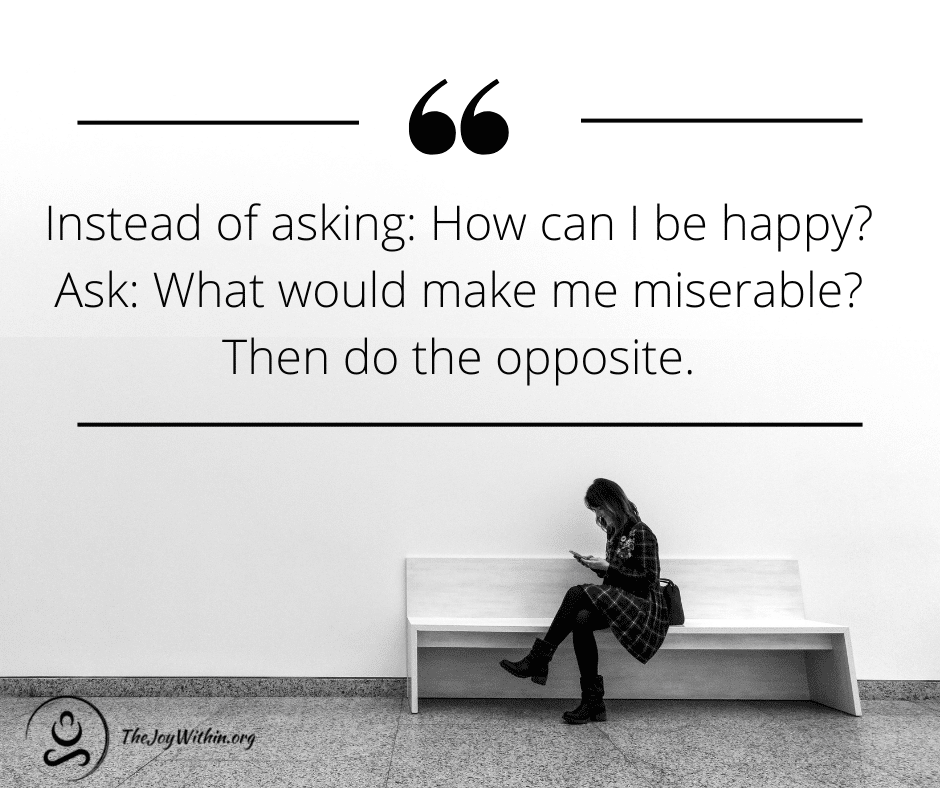
Well for me, here’s the list I came up with.
- Firstly, I would worry, a lot. I would try to fret about as many things as I possibly could. Which goes along with #2:
- I would try to control every single detail of what happens. I would be really, really specific about one single, right way that everything in my life should be, and then I would get really upset anytime anything drifted away from that.
- I would judge, constantly, whether where I am right now, what I’m doing and the progress I’m making, is on track towards where I want to be.
- I would constantly stress myself out by trying to accelerate my goals at a crazy pace. I would set arbitrary deadlines that overwhelm me and I would freak out whenever I didn’t hit them. I would even let this stress paralyze me in the weeks and months leading up to the deadline, because I would be obsessed about not meeting the most ambitious goal.
- Whenever I do reach goal, I would pretend it wasn’t important to me. I would decide it was silly, or easy, and I would immediately raise the bar and push back the feeling of success and fulfilment until I achieved something better.
- I would judge my life according to others’ ideas of what is right, or good, or successful. I would let other people convince me that their definition of a good life is right, and my definition is wrong.
- I would compare my achievements to others. I would look at every single area of my life, and I would try to find one person in the world who did or can do that thing better than me. Then I would beat myself up about it. If I could find 1 person in the world who has more money than I do, I’d decide I was a failure. If I could find 1 person in better shape, then I’d decide I was a failure. If I could find 1 person with a better relationship, I’d decide I was a failure. Repeat this for everything that’s important to you.
- I would assume that every bad thing in my life – every single thing I don’t like – was permanent, and I would assume every good thing was fleeting.
- I would be incredibly sarcastic, all of the time.
- I would focus on as many negative things as I could find. I’d talk about things that bother me. I’d look for reasons to hate people. I’d find the thorn on every rose and I’d make sure that everyone around me had a chance to poke that thorn.
- I would blame everyone for everything. I would decide that I was the victim of every negative circumstance, and that there was absolutely nothing I could do about it.
- I would hold onto grudges. If someone did something to upset me – no matter how small, or how long ago – I would hold onto it. I would remember it everyday, and I would seethe in silent hatred for that person.
- I would close myself off to others. I would put up a wall, and I would try very, very hard not to let anyone in.
- I would decide that – no matter what – I wasn’t enough. And I would bounce back and forther between wallowing in that fact and stressing myself out, wearing myself out, trying desperately to prove otherwise.
- Lastly, I would decide that the entire world is against me. I would decide that people are genuinely awful, that they will lie, cheat, trick you at every turn, that they are cold and mean-spirited, and that the world is a cruel, evil place.
I could go on, but I’ll leave it there for now. And I hope you’ll agree that when we do this exercise, it becomes really, really easy to see some of the flaws in our everyday thinking, our everyday habits, and it becomes easier to point out some things that we do that, really aren’t serving us.
I know for me, as I was writing this list, some of them jumped out at me and I thought: you know what, I am kind of sarcastic sometimes, I could be better at that. Or: I do downplay my achievements sometimes; I could celebrate more of my little wins.
And, I think this process gets at those opportunities for improvement in a really soft, gentle way. Because it’s almost comical – and I think kind of fun. So, I really encourage you to try this out for yourself. I’m going to leave it here for now, but in the next episode we’ll take this list and flip it back, so it points the way towards real actions, real changes we can make to be happier.

